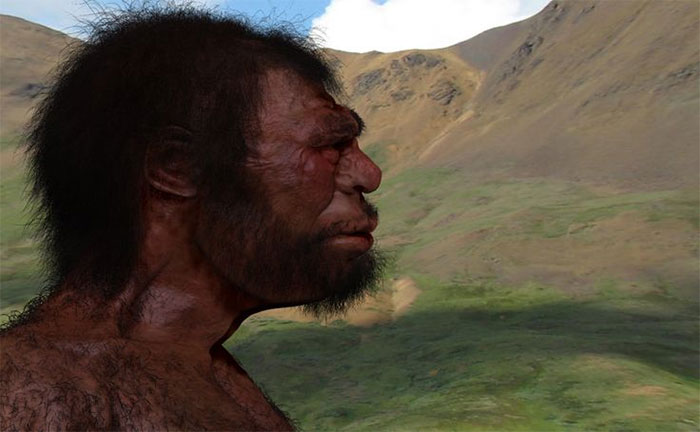The mystery of the power of people carrying other genes right inside us
The ancient marital marriages have left in some modern humans today a special genetic variation that determines their ability to cope with a number of diseases.
A team of scientists led by immunologist Shane Gray from the Garvan Medical Research Institute (Australia) has discovered a gene that does not really belong to modern humans Homo sapiens in the DNA of many members belonging to several special family.
As many studies have shown, the "human" in the modern world is actually just a late-born postpartum of the genus Homo sapiens (modern humans, smart people). Before Homo sapiens, many other species of the human genus roamed the earth, carrying different biological properties. Unfortunately, other human species became extinct one after another, only Homo sapiens survived and dominated his genus until now.

Many of us have Denisovans hybrid blood and the power to fight disease is superior to homo sapiens - (photo: EARLY MAN).
During the nomadic process, different species of the genus Homo encountered and mating of different species occurred. Therefore, in the DNA of some modern humans, Australian scientists have identified I207L, a genetic variation of Denisovans that purebred Homo sapiens do not have.
The impact of I207L on the body of those who wear it can be positive, neutral or negative. This variation makes the immune systems of "hybrid" Homo sapiens more powerful than other Homo sapiens. For many people, it is a golden gift from their ancestors, helping them to cope better with many diseases. But for some people, the immune system is overactive, leading to autoimmune diseases, severe inflammatory conditions.
However, after all, this variant is considered to have evolutionary benefits on the modern human immune system.
The finding is based on the genetic comparison of Denisovans' remains unearthed in a mountain cave in Siberia and the DNA of some modern families with inherited inflammatory and autoimmune diseases. The work has just been published in the scientific journal Nature Immunology .
Previous studies have shown that the number of DNA carriers scattered throughout the world is numerous. A statistics in Papua New Guinean shows that the country has up to 5% of the Denisovans genome. Another study, published in July 1919 by New York University, confirmed that up to 40% of Asians have traces of different species marriages to Denisovans in the genome.
- Human genome mystery
- Having good genes, people will live longer
- The mystery of anti-aging genes
- 'Gene therapy' Near or far?
- Longevity thanks to mutant genes
- Found twins in humans
- The mystery of the twins' relationship
- Decoding the Vietnamese gene to improve the race
- Reveal the mystery of traces on the
- Asians are relatives of extinct people
- Vietnam is about to build 2 nuclear power plants
- People become, defeat is due to genes?
 Discovered an ancient centipede fossil 99 million years old
Discovered an ancient centipede fossil 99 million years old Discovered bat-like dinosaurs in China
Discovered bat-like dinosaurs in China Discovered a 200-year-old bronze cannon of the coast
Discovered a 200-year-old bronze cannon of the coast Discover 305 million-year-old spider fossils
Discover 305 million-year-old spider fossils